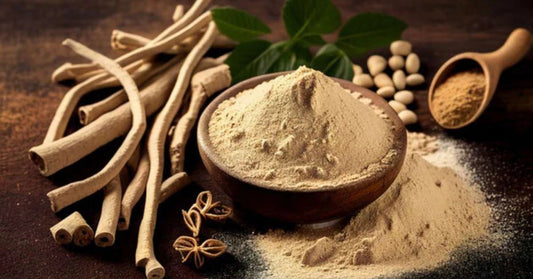How Zinc Supports Immunity, Hormone Balance, and Skin Health
Why Zinc Matters for Your Health
Zinc is an essential mineral that plays a critical role in many body functions, from supporting a strong immune system to promoting healthy skin and hormone balance. It’s involved in over 300 enzyme reactions and helps with cell regeneration, wound healing, and proper digestion.
However, zinc deficiency is more common than many think—especially among people following plant-based diets like vegan or vegetarian eating patterns. Low zinc levels can weaken immunity, slow wound healing, cause hair thinning, and lead to skin issues like acne or eczema.
In this article, you’ll learn why zinc is so important, how to recognize signs of deficiency, and how to choose the right type of zinc supplement to meet your needs.
The Role of Zinc in Your Body
Zinc is vital for:
- Immune defense: Helps fight infections and reduce inflammation.
- Hormone balance: Supports reproductive health and hormone regulation.
- Healthy skin: Aids in wound healing and improves skin conditions like acne.
- Digestive health: Assists in breaking down proteins, carbs, and fats.
- Taste and smell: Zinc is essential for proper taste and smell functions.
Zinc is especially important during pregnancy, childhood, and for older adults who need stronger immune support.
Signs of Zinc Deficiency
Common signs of low zinc levels include:
- Frequent colds or infections
- Slow wound healing
- Hair loss or thinning
- Skin issues like acne, eczema, or dryness
- Loss of appetite, taste, or smell
Those at higher risk of deficiency include vegans, vegetarians, pregnant women, breastfeeding moms, and people with digestive disorders.
If you suspect a deficiency, talk to your doctor and consider getting your zinc levels tested.
Best Food Sources of Zinc
Animal-based sources (easiest to absorb):
- Oysters (the highest zinc content)
- Beef, chicken, and eggs
Plant-based sources:
- Pumpkin seeds
- Lentils and chickpeas
- Cashews
Pro tip: Combine zinc-rich foods with vitamin C sources (like citrus fruits or bell peppers) to improve absorption. Also, soaking or sprouting grains, legumes, and seeds can reduce phytates, which block zinc absorption.
How to Take Zinc for Best Results
- Empty stomach: Best absorption, but may cause nausea in some people.
- With food: Helps avoid stomach upset—just avoid taking with dairy or grains, as they may reduce absorption.
- Separate from calcium and iron: These minerals compete with zinc for absorption.
Recommended daily dose:
- Around 25 mg per day for adults.
- Do not exceed 40 mg daily unless directed by a healthcare provider.
High doses for long periods may interfere with copper and iron absorption, so balance is key.
Final Thoughts
Zinc is essential for immunity, hormone balance, skin health, and overall wellness. Whether through your diet or supplements, maintaining healthy zinc levels can help you feel stronger, heal faster, and keep your skin glowing.
Choose high-quality supplements, follow dosage guidelines, and consult your healthcare provider if you’re unsure about your needs.



